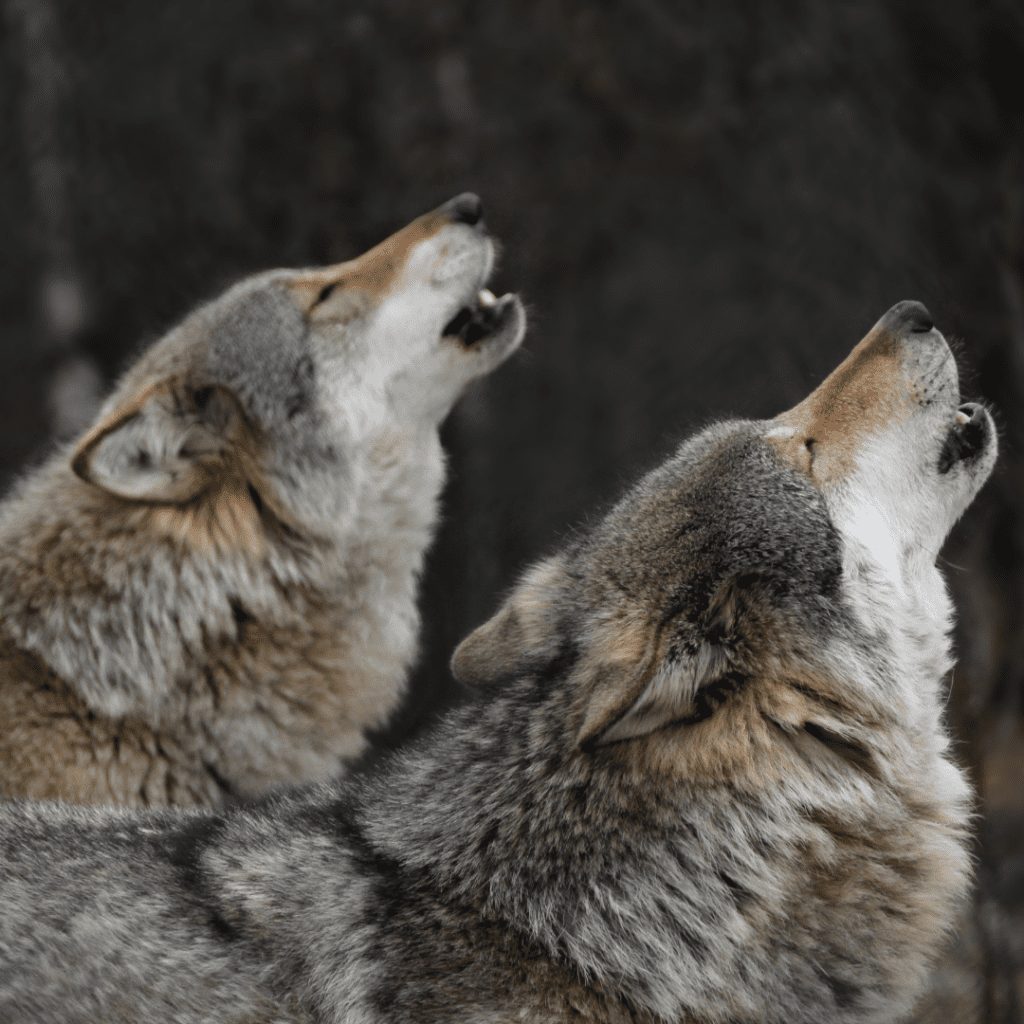Contact: Claire Loebs Davis, Board President, Washington Wildlife First, claire@animalearthlaw.com
For Immediate Release: July 19, 2023
OLYMPIA, WA— Eleven conservation groups petitioned the Washington Fish and Wildlife Commission yesterday to adopt rules requiring the state to meet certain standards before it uses taxpayer money to kill state endangered wolves.
Washington taxpayers have footed the bill to kill 41 endangered wolves over 10 years, spending hundreds of thousands of dollars for sharpshooters to kill wolves from helicopters. The Department killed about 80% of these wolves due to predations on cattle belonging to a single family, repeatedly eliminating entire packs in the same areas
The rulemaking petition comes after Gov. Jay Inslee directed the commission three years ago to initiate rulemaking to regulate the management of wolves. Despite this directive, the commission voted in 2022 against adopting a wolf management rule. Similar to past proposals, the proposed rules would require the Washington Department of Fish and Wildlife to document that livestock operations have taken steps to protect their cattle before killing wolves due to livestock conflicts.
“Killing wolves does not solve conflicts with livestock, which is why we see conflicts develop in the same areas year after year. The rules we propose would require the Department to address the conditions that give rise to such conflicts before it can consider killing wolves,” says Claire Loebs Davis, board president of Washington Wildlife First. “We hope the Fish and Wildlife Commission will take this opportunity to establish Washington as a leader in managing wolves in accordance with science rather than emotion.”
The proposed rules would also prevent the state from killing wolves due to conflicts with livestock in public-owned forests, a practice supported by only 25% of Washington voters according to a poll commissioned last year by Washington Wildlife First. Yet nearly 90% of the wolves the state has killed were targeted, at least in part, due to predations of cattle grazing on public lands, including within the rugged territory of the Colville National Forest.
“The Colville National Forest is prime wolf country, not a cattle pasture,” Davis says. “As people continue to encroach on wildlife habitat, it is increasingly important that we preserve some areas for our wildlife. Instead, we have a few livestock owners who turn their cattle out into the Colville Forest year after year with no supervision or protection, and when some of those cattle are killed by predators, the state kills the predators. That needs to end.”
Currently, Washington wildlife officials decide when to kill wolves after considering a nonbinding protocol that has proven ineffective in protecting both wolves and livestock. The Department has frequently killed wolves after conflicts with cattle that were grazing in public forests directly on top of wolf dens or rendezvous sites, when the livestock owners have not taken any meaningful steps to protect their cattle, and even when dead cattle had been left nearby to attract predators. In some cases, the Department has killed wolf pups too young to hunt. Typically, wolves are killed at random by helicopter sharpshooters, often many days or weeks after the predations occurred.
“The Department insists that randomly shooting some members of a pack weeks after a cattle predation will somehow teach the rest of the wolf pack a lesson. Everybody who owns a dog knows this is preposterous, and not surprisingly, there is no scientific support for this approach,” Davis says. “The Department knows better, and it needs to focus its efforts on helping people to prevent these conflicts before they occur, rather than on ‘punishing’ wolves for being wolves.”
Both livestock owners and wildlife advocates have complained about the uncertainty and inconsistency in the state’s wolf management decisions and the Department’s lack of transparency. For example, Washington Wildlife First filed a public disclosure request more than 10 months ago for information about a Department decision to kill wolves from the Smackout pack, but is still waiting to receive documents showing the rationale for that decision.
“It is a drastic and unusual step for the state to kill a state endangered species,” Davis says. “The Department manages the state’s wildlife in trust for all people in the state, and it is unacceptable that it makes these momentous decisions without any accountability or transparency.”
In recent years, Washington has also seen a rise in the number of wolves killed by the public. In the past six years, livestock owners have killed 10 wolves claiming they were “caught in the act” of attacking livestock, with 5 of these shootings occurring during the past two years. In many cases, there is no evidence to support these claims, with some investigations showing that the wolf was not even near livestock at the time. The proposed rules would close this loophole by implementing standards for when a livestock owner can kill a wolf “caught in the act.”
Meanwhile, nine wolves were illegally killed in 2022, including six that were poisoned. The Department has not made any arrests in connection with these incidents, despite a reward of more than $50,000 posted by wildlife advocacy groups for information leading to a conviction.
“Since the Department continues to perpetuate the myth that killing wolves is the ultimate solution to conflict, the increase in wolves killed by members of the public sadly comes as no surprise,” says Davis. “We are asking the Department to show leadership and clearly communicate the message that killing wolves is not the answer and prioritize its work with livestock owners to find solutions to better protect both wolves and livestock.”
The rulemaking petition was filed by Washington Wildlife First, the Center for Biological Diversity, Western Watersheds Project, WildEarth Guardians, Northwest Animal Rights Network, Coexisting with Cougars in Klickitat County, Cascadia Wildlands, Animal Wellness Action, Center for a Humane Economy, Kettle Range Conservation Group, and the Endangered Species Coalition. The commission has 60 days to respond.
